Myeloma Treatment & Research Updates From 2022 ASCO and EHA Meetings
Myeloma Treatment & Research Updates From 2022 ASCO and EHA Meetings from Patient Empowerment Network on Vimeo.
Myeloma specialist and researcher Dr. Krina Patel discusses highlights from the recent American Society of Clinical Oncology (ASCO) annual meeting and the European Hematology Association (EHA) 2022 Congress. Dr. Patel shares promising research updates related to approaches including: stem cell transplant, CAR T-cell therapy, and bispecifics.
Dr. Krina Patel is an Associate Professor in the Department of Lymphoma/Myeloma at The University of Texas MD Anderson Cancer Center in Houston, Texas. Dr. Patel is involved in research and cares for patients with multiple myeloma. Learn more about Dr. Patel, here.
Related Resources:
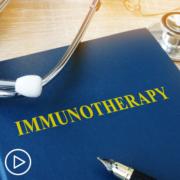
|
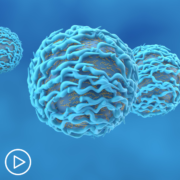
|
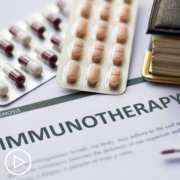
|
Transcript:
Katherine:
Dr. Patel, cancer researchers recently came together at the annual ASCO and EHA meetings. Are there any highlights from the meetings that myeloma patients should know about?
Dr. Patel:
Yeah, so we had some amazing trials that were presented at both. And I got to actually go to Chicago for the ASCO meeting, and I’ll say we actually had a plenary session that was presented for myeloma. That doesn’t happen as often as we like. So, basically that was a study presented by Dana-Farber and all of the different groups around the U.S. that did a transplant study. And basically, they’re looking at patients who got induction therapy when they’re newly diagnosed with transplant versus they didn’t get transplant upfront. And it’s called the DETERMINATION study, and it was to determine should everybody be getting a stem cell transplant.
Katherine:
Right.
Dr. Patel:
And this is a trial that’s been going on for over 10 years; that’s why it was so highly anticipated. And basically, the biggest thing that we saw was what we call progression-free survival; so, the time that the myeloma hibernates is what I call it, for PFS. Basically, patients who got transplant upfront, it was 21 months longer that it stayed hibernating than if you didn’t get transplant upfront. So, that’s the trial, that’s what it was looking at, and that’s all they could really say about it. The good news is, even patients who didn’t get transplant upfront but then got transplant in second remission tended to have a really good, long progression-free survival or hibernation in that second remission.
So, it still tells us that right now, a transplant is still important for the majority of our myeloma patients. And basically, that’s sort of what that trial showed.
Now, the difference is we do different types of upfront therapies, and we have new things like CAR T and bispecifics that are coming up earlier. So, we’ll see in the future if it still holds up. But as of right now, it still holds up for transplant. The other big studies, of course, were some of our bispecific studies that use different antigens. So, antigens are the flags that are on the myeloma that we make these receptors for CAR T, so they can find the myeloma, or bispecifics go after that.
And basically, there are other antigens. BCMA, B-cell maturation antigen, is the big one that we use for everything right now. But now, we found even more antigens, which is fantastic.
So, we have something called FcHR5. We have something called GPRC5D. It’s like alphabet number soup, basically. But what’s really exciting is that these new antigens give us a different way of getting to that myeloma, especially if someone has already had a BCMA therapy and they’ve relapsed on that. Well, now we have even new ways to get to that myeloma cell. So, I think that’s some really, really exciting data.
And then, I’ll say the other big one was one of the CAR Ts, Cilta-Cel was something that they presented.
Again, this was two years after the last patient had gotten treated on the trial. And so far, they still have about 71 percent of patients that are still in remission two years after. So, that is huge.
Katherine:
Wow.
Dr. Patel:
We’ve never seen that in relapsed refractory patients before, so we’re really, really excited to kind of have gotten that data to say, “Okay, we found a brand-new way of treating myeloma.” And it really is changing how we’re looking at even earlier lines of therapy now.
Katherine:
Such promising news. That’s great.



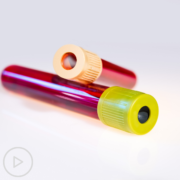
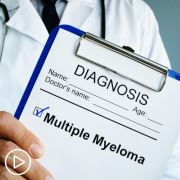
![[ACT]IVATED AML Resource Guide III English](https://powerfulpatients.org/wp-content/uploads/ACTIVATED-AML-Resource-Guide-III-English-180x180.png)




